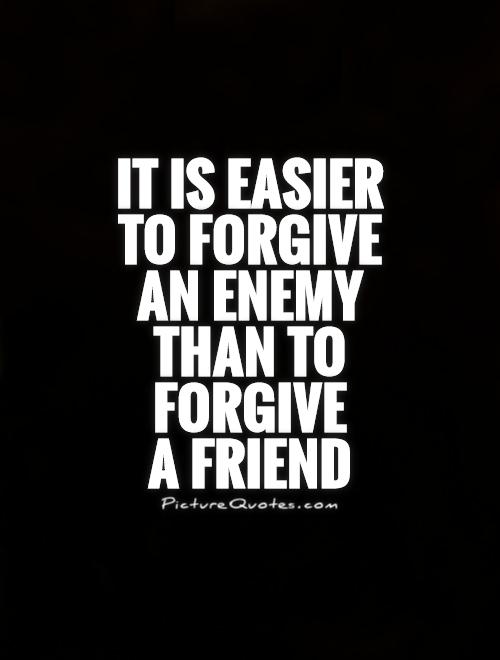It is easier to forgive an enemy than to forgive a friend

It is easier to forgive an enemy than to forgive a friend
William Blake, the renowned English poet, painter, and printmaker, is known for his profound insights into human nature and the complexities of relationships. In his works, Blake often delves into the themes of forgiveness, betrayal, and the fragility of trust. One of his most famous quotes, "It is easier to forgive an enemy than to forgive a friend," encapsulates the deep emotional turmoil that can arise when a friend betrays our trust.In Blake's view, forgiving an enemy may be easier because there is a clear distinction between friend and foe. Enemies are often seen as external threats, and forgiving them can be a way to release oneself from the burden of anger and resentment. However, forgiving a friend who has betrayed us can be much more challenging because it involves a deeper sense of betrayal and a breach of trust that strikes at the core of our emotional well-being.
Blake's quote suggests that the betrayal of a friend can be more painful because it shatters the foundation of the relationship built on trust, loyalty, and mutual understanding. When a friend betrays us, it can feel like a personal attack on our character and values, leaving us feeling vulnerable and exposed. The sense of betrayal can be so profound that it may be difficult to reconcile with the friend and forgive them for their actions.
Moreover, forgiving a friend may also require a greater degree of introspection and self-reflection. We may question our own judgment and ability to discern the true intentions of those closest to us. The process of forgiveness may involve confronting our own vulnerabilities and insecurities, as well as reevaluating the dynamics of the friendship.












 Friendship Quotes
Friendship Quotes Love Quotes
Love Quotes Life Quotes
Life Quotes Funny Quotes
Funny Quotes Motivational Quotes
Motivational Quotes Inspirational Quotes
Inspirational Quotes